Ukrainian sci-fi fiction has long escaped the shadow of its Soviet counterpart. Moreover, the Ukrainian space adventure as a genre is now widely embraced. We discuss seven Ukrainian authors whose works depict interplanetary and interstellar travel.
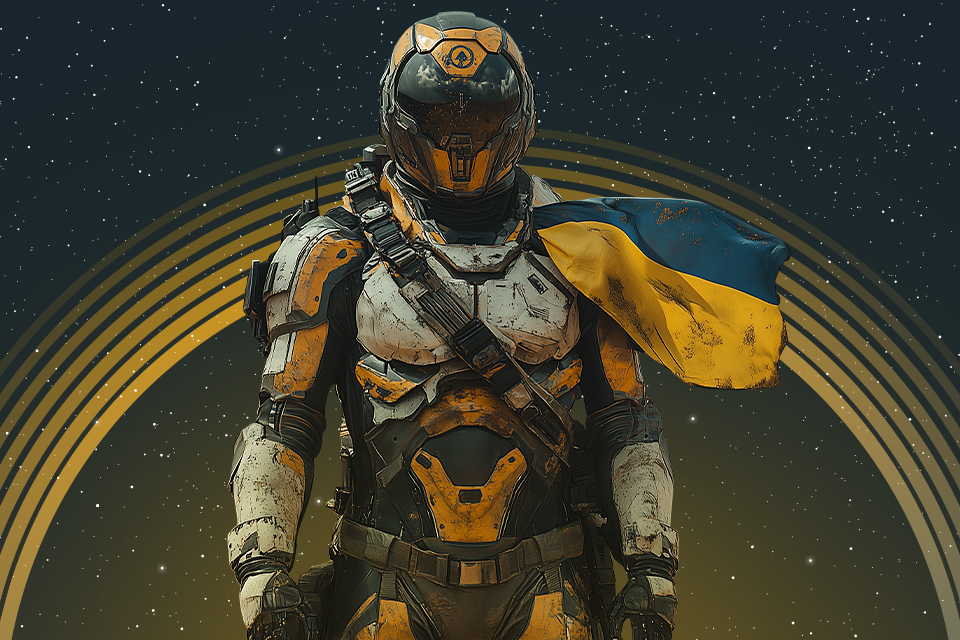
Space Sci-fi in Independent Ukraine
Any discussion about Ukrainian sci-fi fiction tends to be prefaced with assurances that it does, in fact, exist. As if the idea that Ukrainian literature never escaped the tropes of poverty-stricken villagers would be ludicrous to anyone but russians.
Unfortunately, even modern fans of Ukrainian sci-fi usually bring up Soviet-era writers first, namely Volodymyr Vladko, Oles Berdnyk, and Ihor Rosokhovatskyi.
Without diminishing the value of their work, it’s still important to keep up with the times. Since Ukraine gained its independence, plenty of talented authors have shown that modern sci-fi could be just as well-written. Let’s delve deeper into the works of seven such authors from the vivid landscape of modern Ukrainian space fiction.
Oleh Avramenko
One of the space fiction pioneers in independent Ukraine, Oleh Avramenko, began writing in the early 90s. His works mostly fall under the category of historical fiction, though he did try his hand at space operas — the sci-fi genre that focuses on space adventure rather than its technical aspects or scientific accuracy.
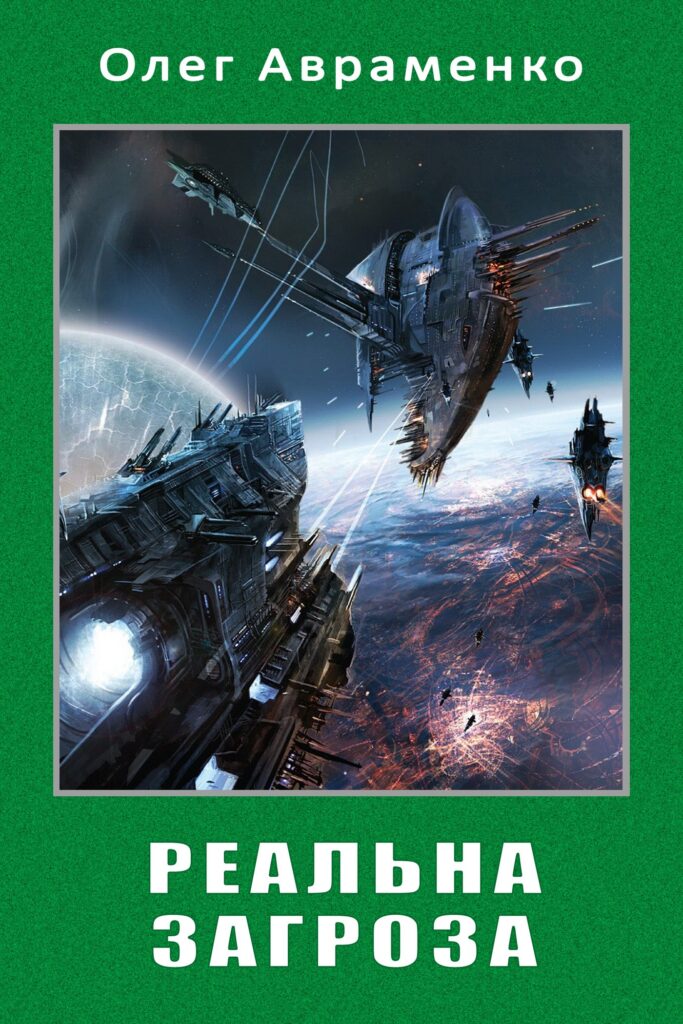
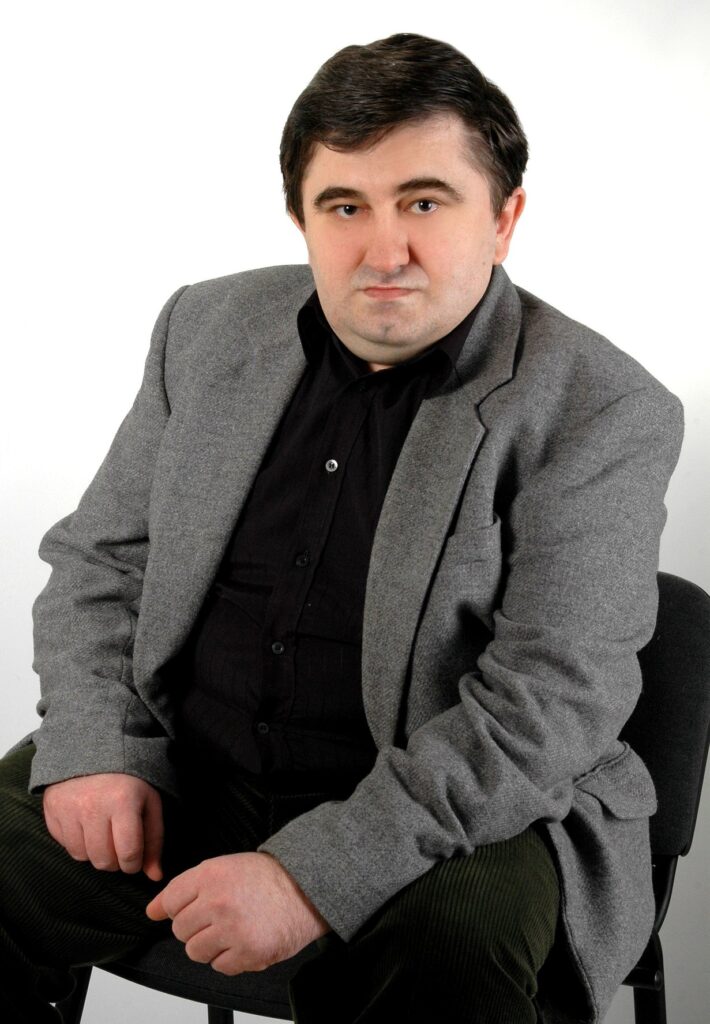
For instance, his duology ‘A Handful of Eternity’ and ‘Ruined Stars’ takes place in the distant future. Humanity has already settled the Galaxy, made contact with alien races, lost a galactic war and ended up completely isolated as a consequence. The main storyline follows our fight to restore that long-lost power.
His other space opera, ‘Certain Threat’, depicts humans who are capable of interstellar travel, but the story plays out on a much smaller scale. The plot unfolds on one planet, focusing on a single astronaut family who managed to become chief rulers there.
With this novel, the author poses a compelling question: if a democratic system is bound to bring incompetent and corrupt politicians to power, wouldn’t it be better to replace it with authoritarianism? Of course, a counterargument can be made that this extreme switch-up could only result in a totalitarian hell, leading to the complete annihilation of the state. But the story does address this concern, raising some very interesting ideas on how to prevent such deterioration.
Prior to this work, Oleh Avramenko already touched on the topic of space travel, though in that instance it took place in rather unusual worlds. Back in the 90s, he published the ‘Source Worlds’ trilogy, a space fantasy in the spirit of ‘The Chronicles of Amber’ by Roger Zelazny. The series follows a family of powerful sorcerers who travel through different worlds. In one of them, the group encounters a powerful space civilization, which sets the plot of the entire trilogy in motion.
There is little doubt that Oleh Avramenko would have continues working on even more fascinating space adventures. Sadly, the serious illness that had haunted him throughout his life finally took its toll, and in 2018, he passed away.
Volodymyr Yeshkilev
Author Volodymyr Yeshkilev has penned perhaps one of the most complex space operas in independent Ukraine, the ‘Farengo’ trilogy. It would be quite accurate to call this series the Ukrainian Dune, as it’s full to the brim with political intrigue, in large part driven by a sort of cosmic magical realism and supernatural abilities.
This saga also sees humanity venture beyond the Solar System, albeit not quite to the pan-galactic extent of previous books. In the years of their expansion, humans have encountered alien species and ruins of dead civilizations, and also had the time to become disillusioned with the democratic system of government, even installing a new empire. Though, by the beginning of the first novel, the empire is already nearing its boiling point, ready to implode.
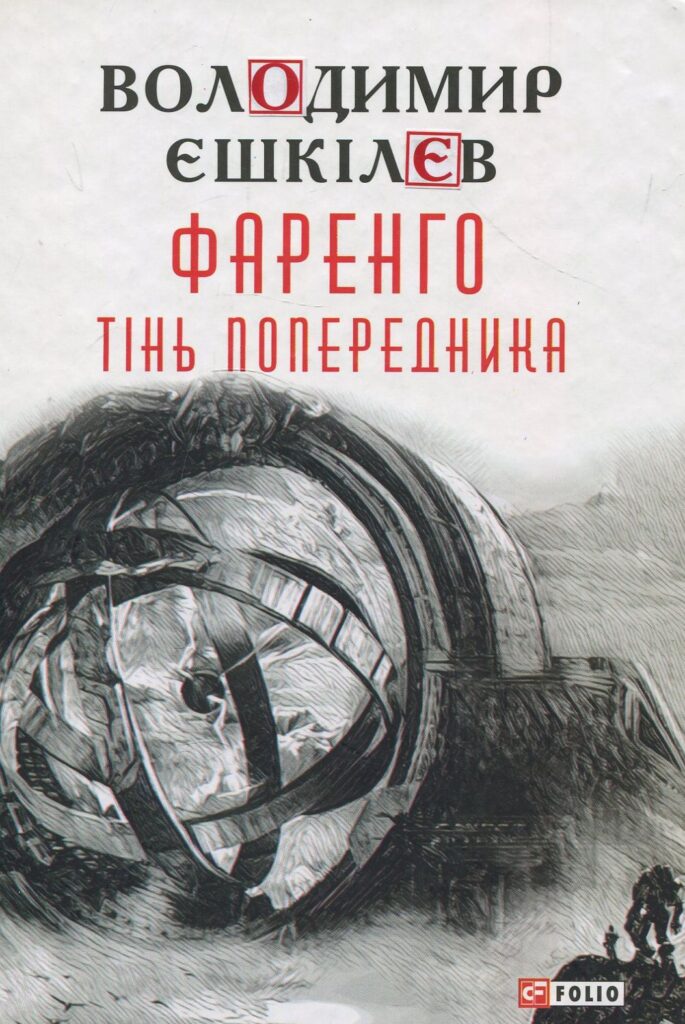
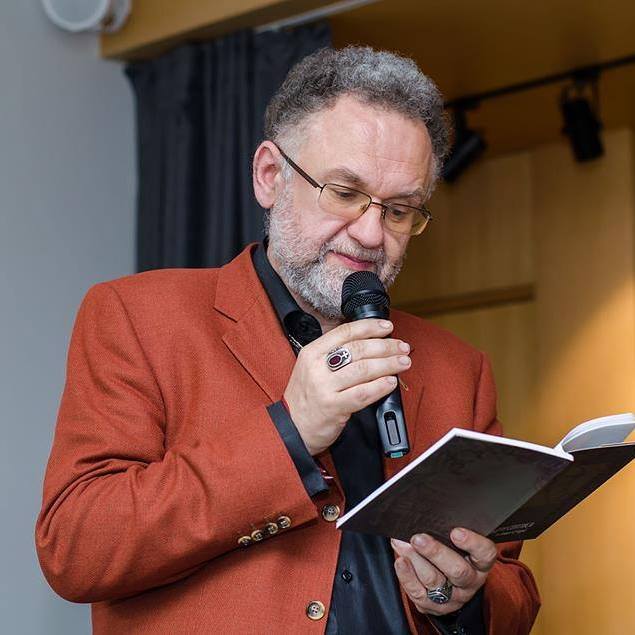
Revolving around a mysterious planet guarded by an alien race—where the main threat stems from truly grotesque monsters—the plot deftly weaves through its various twists and turns that feature secret imperial agencies, revolutionaries, aristocrats, a closed female order that safeguards ancient secrets, and many more.
What’s especially intriguing in Yeshkilev’s world is the coexistence of biotechnologies and AI. Both are a normal part of life, so their mutual complexity contributes to the narrative tension.
Ihor Silivra
Ukrainian sci-fi writer Ihor Silivra is known primarily for his steampunk and alternative history novels, particularly his 2019 book ‘The Human Limit’. Set in the outskirts of the Solar System sometime in the future, it shows humanity who has colonized the Solar System long before the events of the novel.
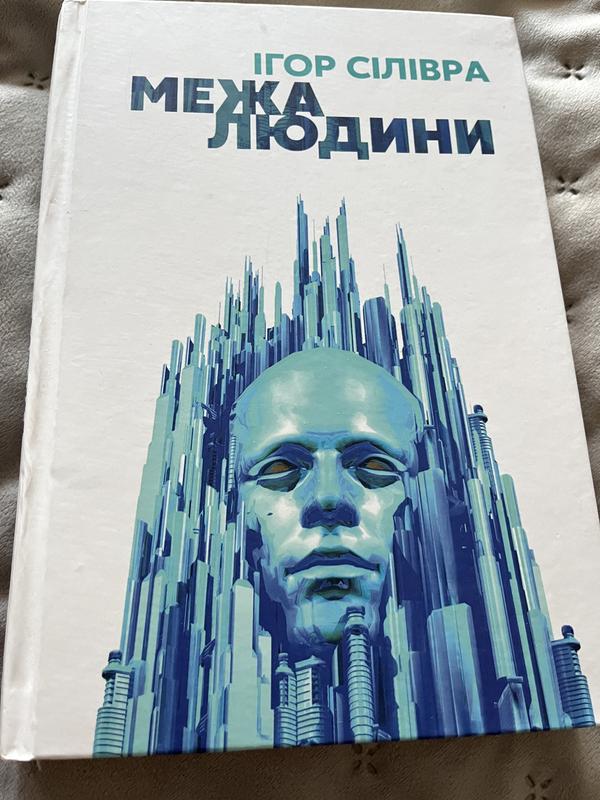
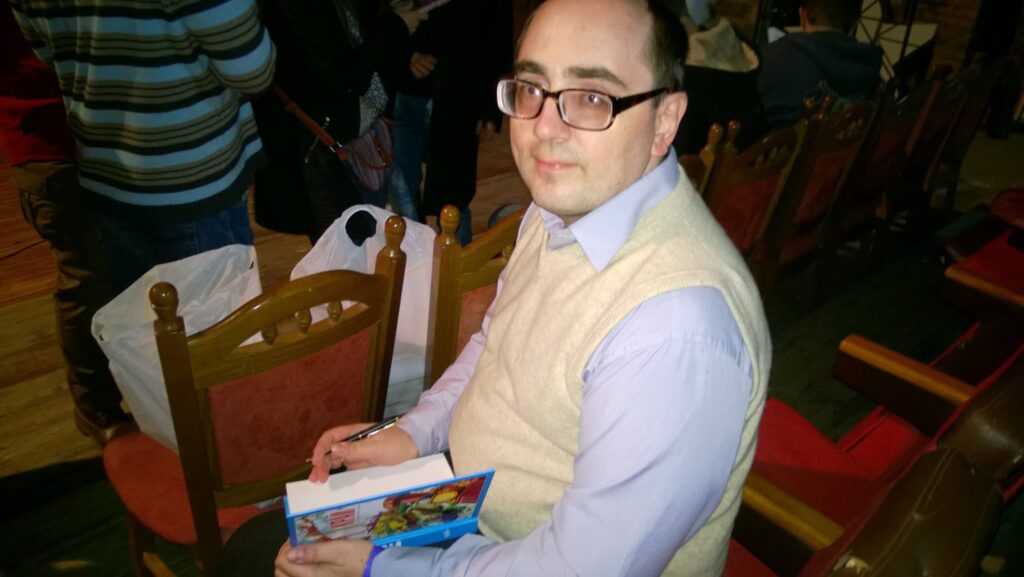
Other major advancements driving the plot include AI, digital networks, as well as virtual and augmented realities. At some point in their history, humans lived through an unexplained major disaster, leaving the surviving communities to search for new settlements on Pluto, Eris, Makemake, and other objects in the Kuiper belt.
Unlike other books on the list, ‘The Human Limit’ is not a space opera, but a rather sober take on the hard sci-fi genre. Its main themes are reflected in the title. When humanity becomes so dependent on machines, and machines start to resemble humans, where is the line that separates them? Will it disappear? And how far can we push the limits of brain augmentation with machines?
The novel explores this thematic throughline from various angles, often forcing us to doubt whether certain key characters can still be considered human. As it stands, this dilemma may soon venture beyond fiction, and we might face it sooner than we think.
Andriy Kryzhevskyi
Andriy Kryzhevskyi is the author of the most extensive Ukrainian space opera to date, ‘Evoton’, comprising three books. The series offers a unique perspective on our future.
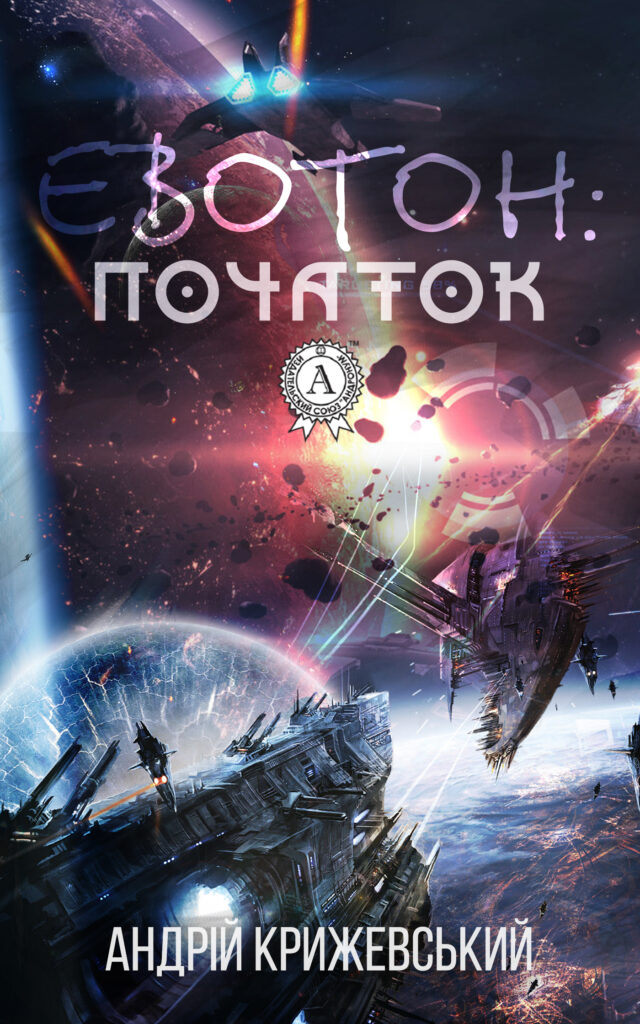
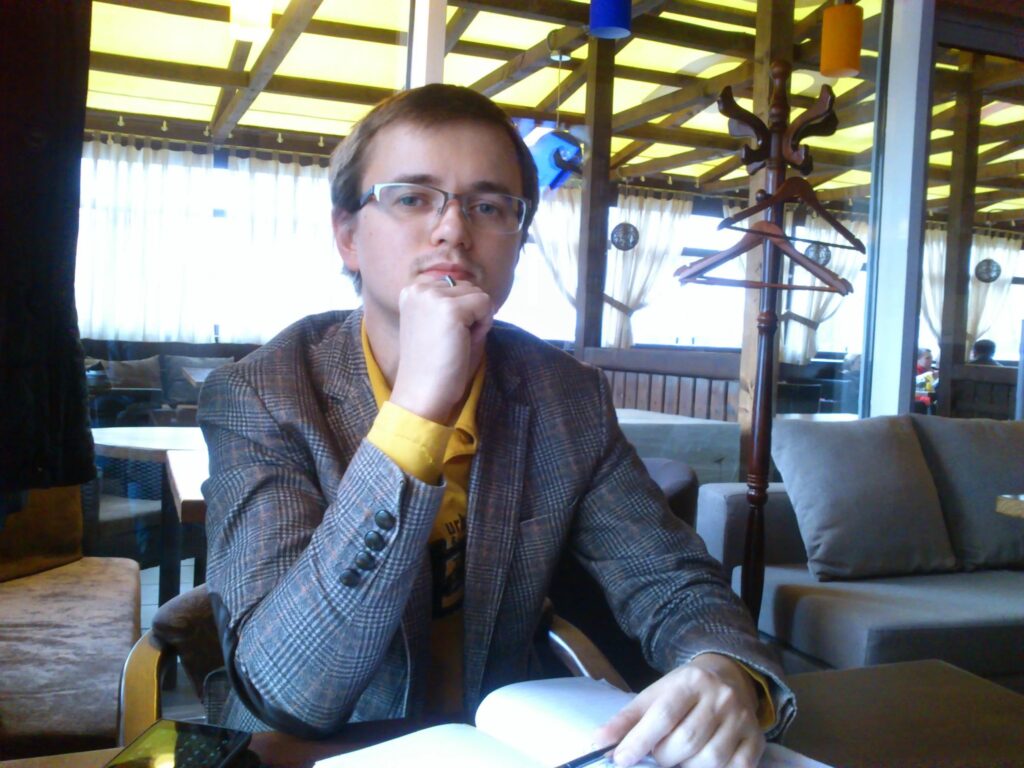
In his world, we are not the only humanoids inhabiting the galaxy. The main plot centers on the titular evotons, fictional elementary particles produced by intelligent organisms that grant them supernatural abilities.
Among all galactic races, humans emit the highest levels of these particles, pushing Earth to the center stage of complex interplanetary politics.
Illarion Pavliuk
Prolific writer and journalist, Illarion Pavliuk has tried his hand at multiple sci-fi genres. His 2019 novel ‘The Dance of the Simpleton’ can technically be classified as a space opera, though its plot is less interstellar and, for the most part, unfolds on a single exoplanet.
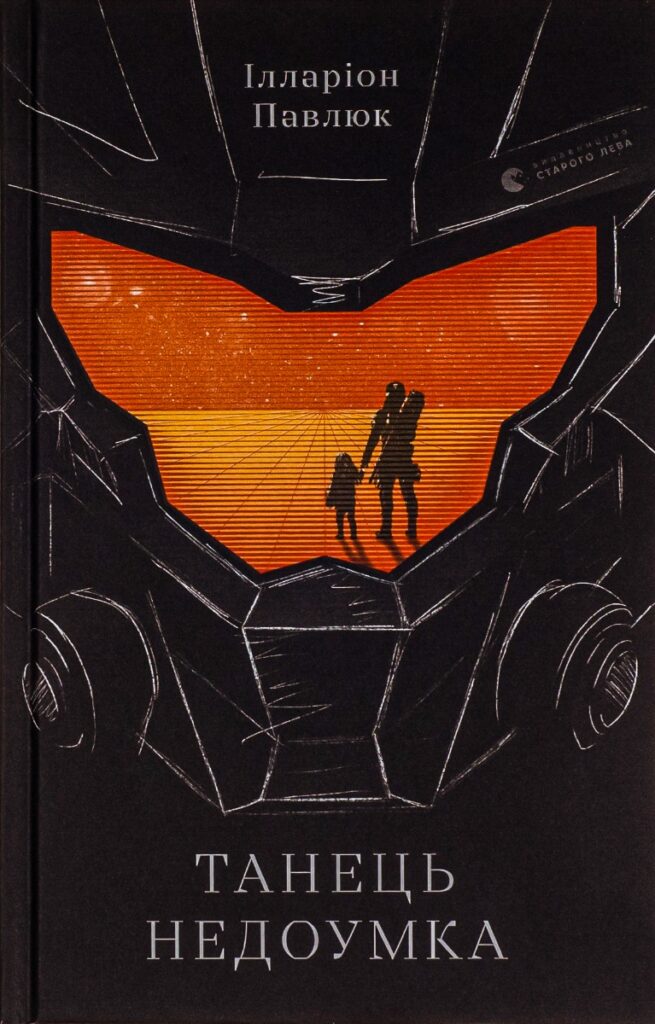
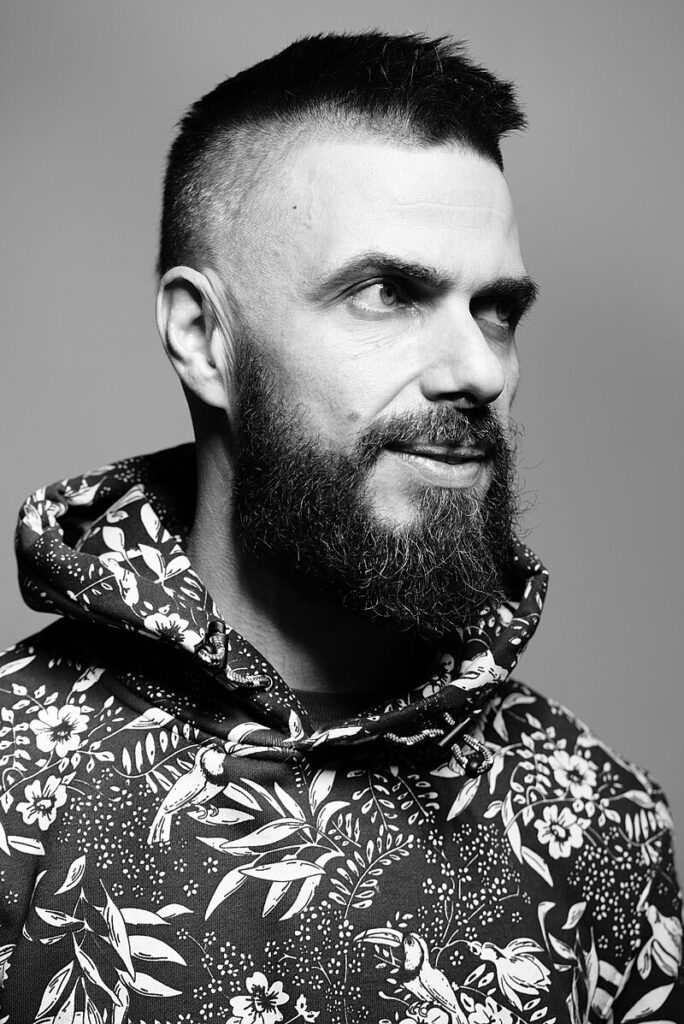
The story follows a psychologist who is approached by a private military contractor to join their expedition. After taking the offer, he finds himself on a journey full of cryptic events, strange alien life, and ruins of fallen civilizations.
The novel’s structure stands out for its balance between action set pieces and quiet moments of reflection, as we follow the main character through his past recollections and inner struggles. This narrative decision is widely considered to be the novel’s strongest feature, making the experience more immersive. On the other hand, it may take away from the excitement we usually expect from adventure stories.
Maksym Kidruk
Maksym ‘Max’ Kidruk is without a doubt one of the most prominent sci-fi writers in independent Ukraine, who captured readers’ attention with his breathtaking techno-thrillers over the past fifteen years. In December 2022, Kidruk published ‘New Dark Ages. Colony’ which quickly topped the sci-fi bestseller lists.
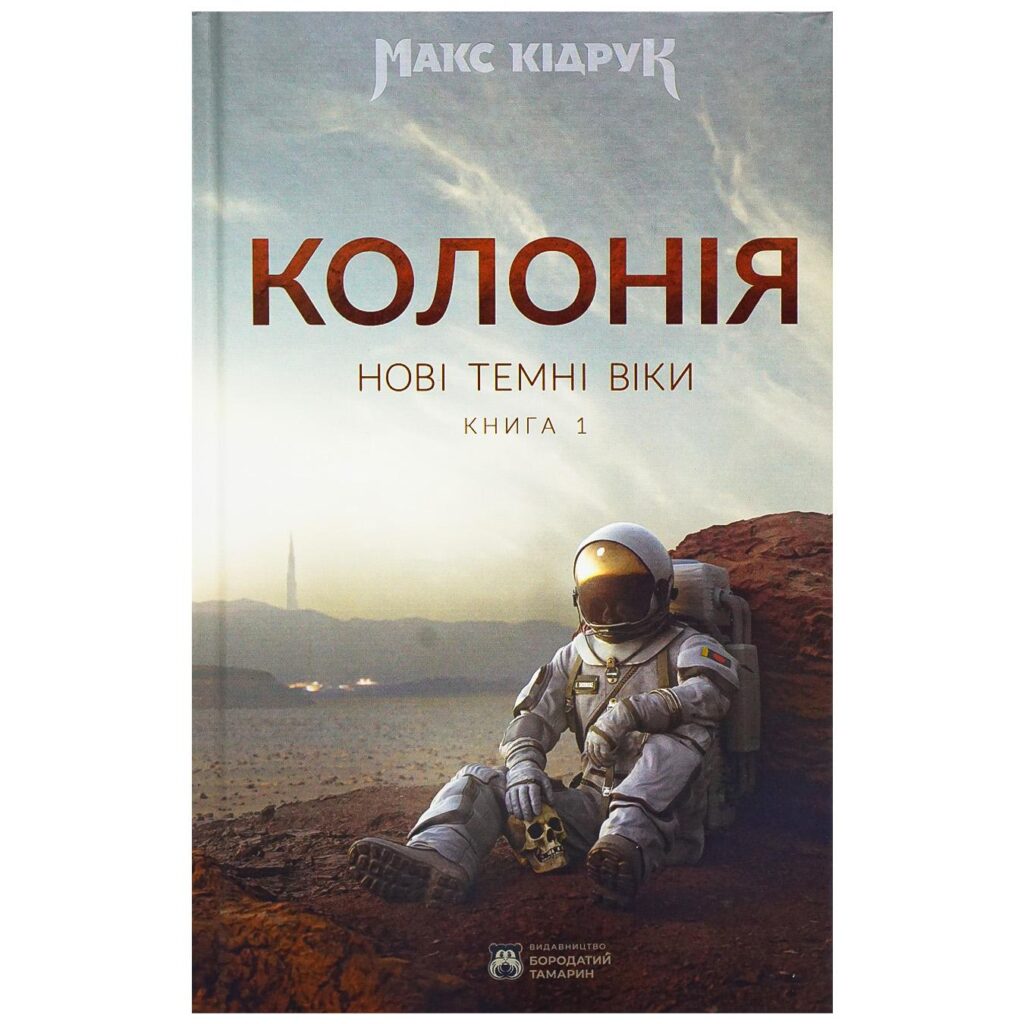
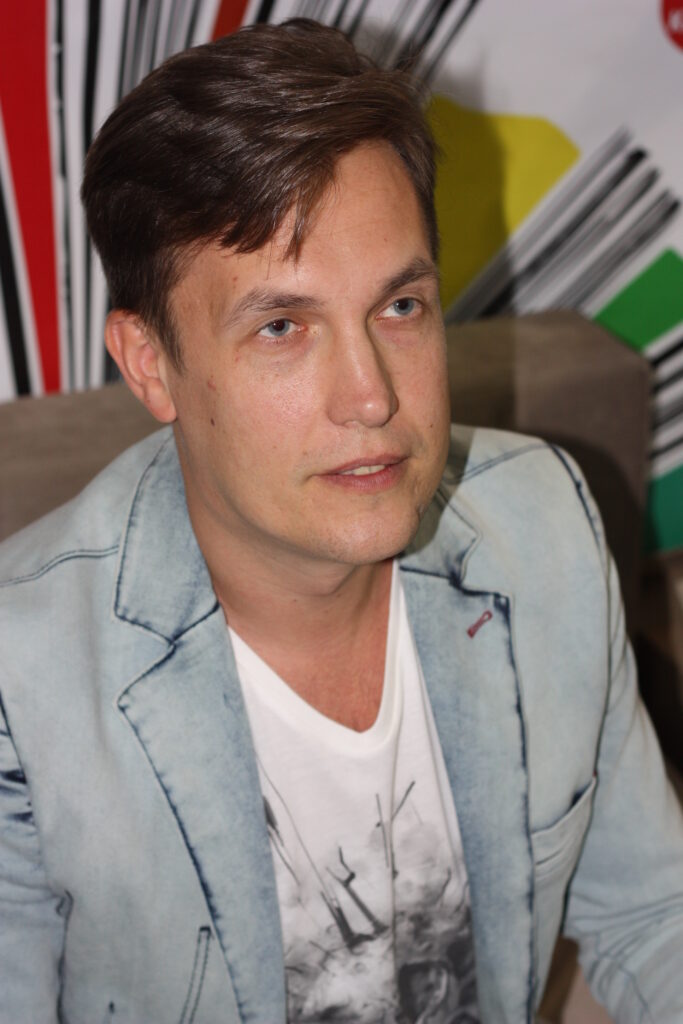
The sheer expanse of ‘Colony’ is truly astonishing, though the same can be said of its thematic scope. What you get is 900 pages of masterfully crafted science fiction that incorporates relevant commentary, charts, and excellent illustrations. And that’s only the first entry in the seven-part series!
Set in the near future, Colony takes place in multiple places on Earth and the now-colonized Mars. On our planet, experimental 3D printing of biological agents is in full swing, epidemics are raging on, and neutrinos seem to have gone out of whack.
In the same timeline, Martian colonists, who have access to a rare compound that extends life, face their own problems. For one, the legal status of Martian-born children that are now reaching adulthood is up in the air. This sparks a major conflict among social groups, eventually leading to violence.
The novel, with its multiple intertwining plot-lines, is a real page-turner. If one criticism can be made against it, it would be Colony’s rather abrupt end. This could have been intentional, to generate anticipation for the follow-up.
Andrii Voron
A rare example of a Ukrainian sci-fi content creator is Andrii Voron who is involved in the genre on multiple platforms. First and foremost, he runs his own YouTube channel, discussing science fiction, in particular stories about space.
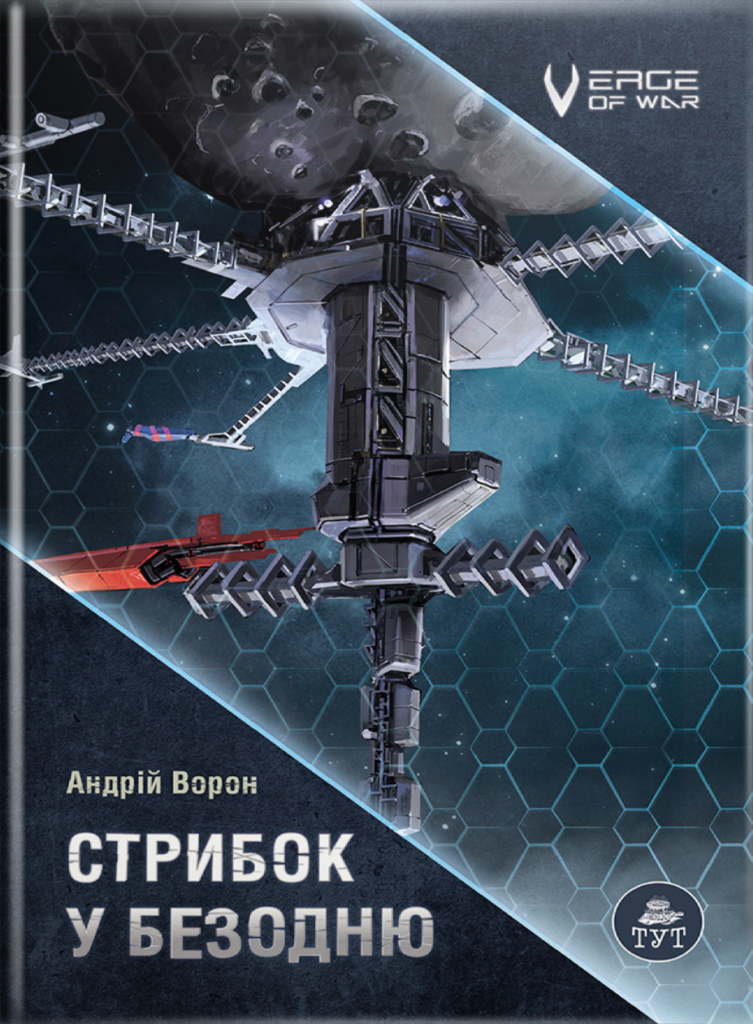
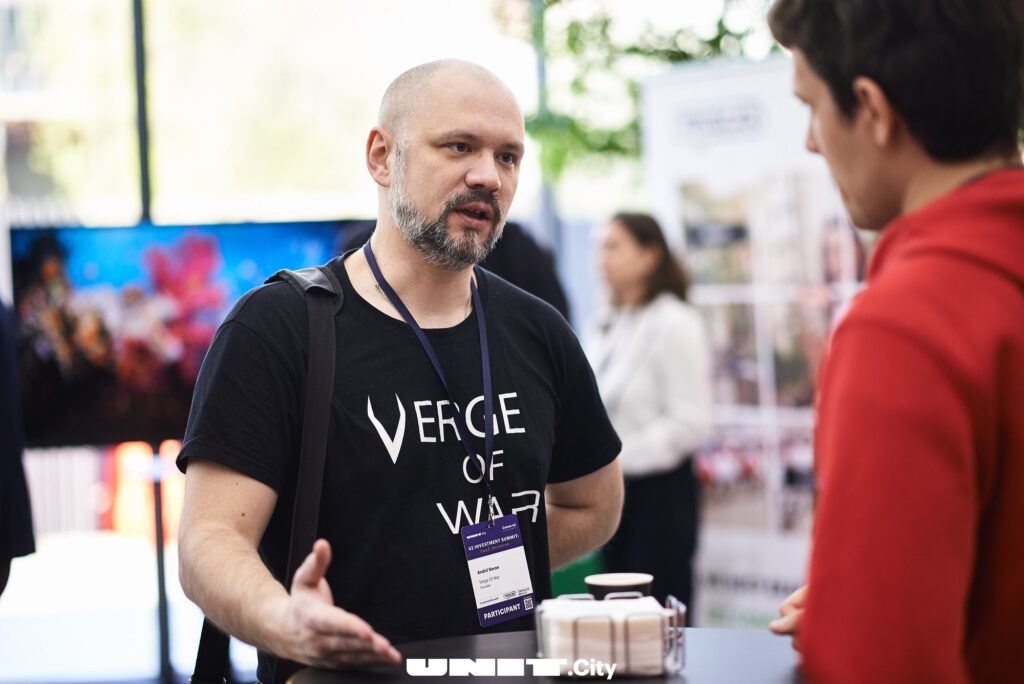
In addition, he has been working on a space opera of his own invention — the board game Verge of War. And finally, Voron recently published his own book ‘Leap Into the Abyss’ which takes place in the same fictional future world as the board game.
At its core, the book is a collection of short stories, each with its own narrative and set of characters. Together, they form a complete picture of the world a hundred years from now. It shows humanity venturing to the stars for the very first time, how interstellar travel becomes routine, and eventually the emergence of renegade space pirates.
Eventually, our civilization will collide with another, once again finding itself on the brink of war, which inspired the series’ title. Andrii Voron himself expertly balances on the verge of sci-fi and a classic space opera experience, which plays to the book’s strengths.


